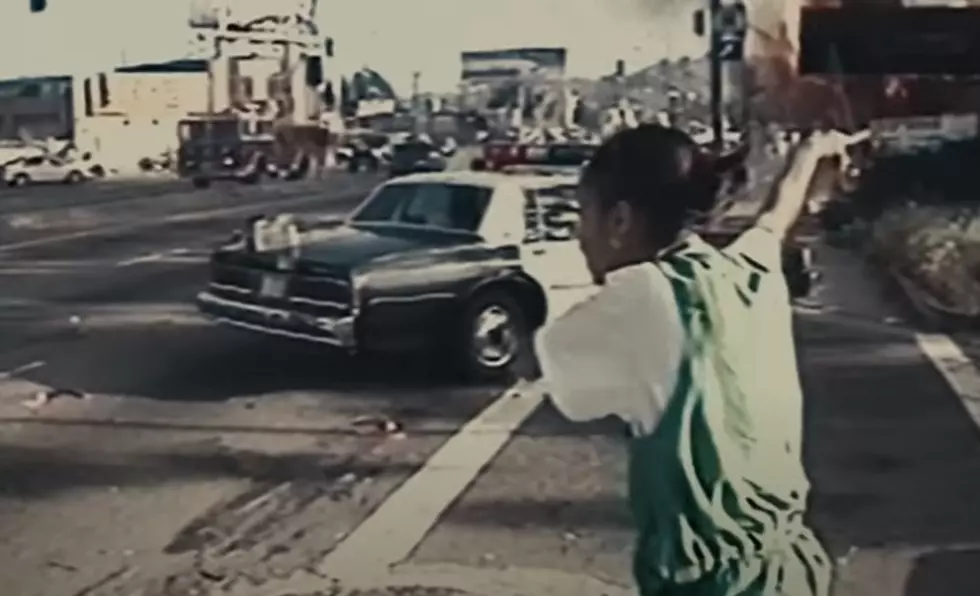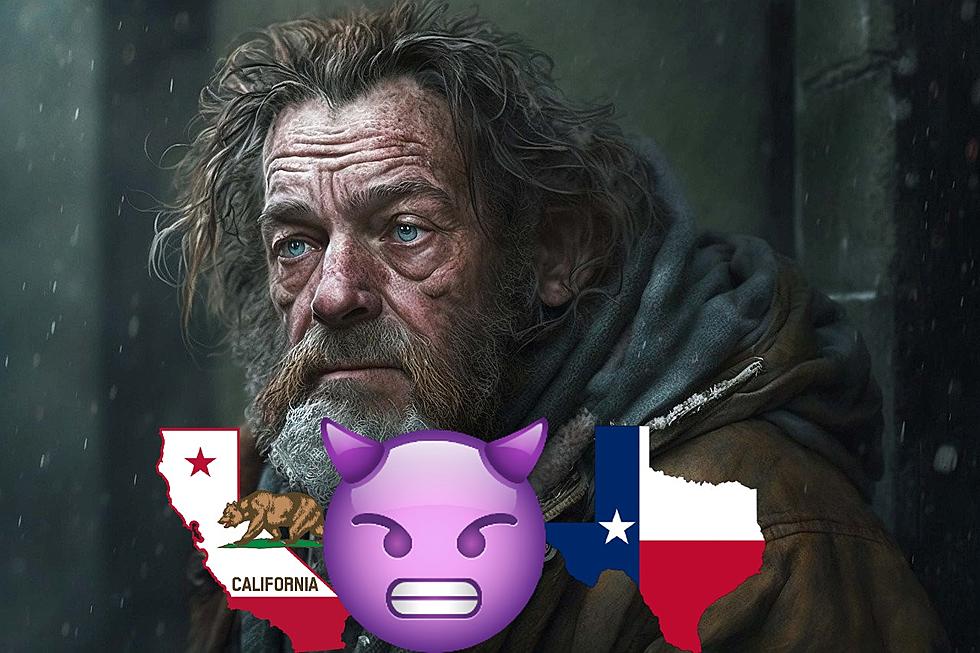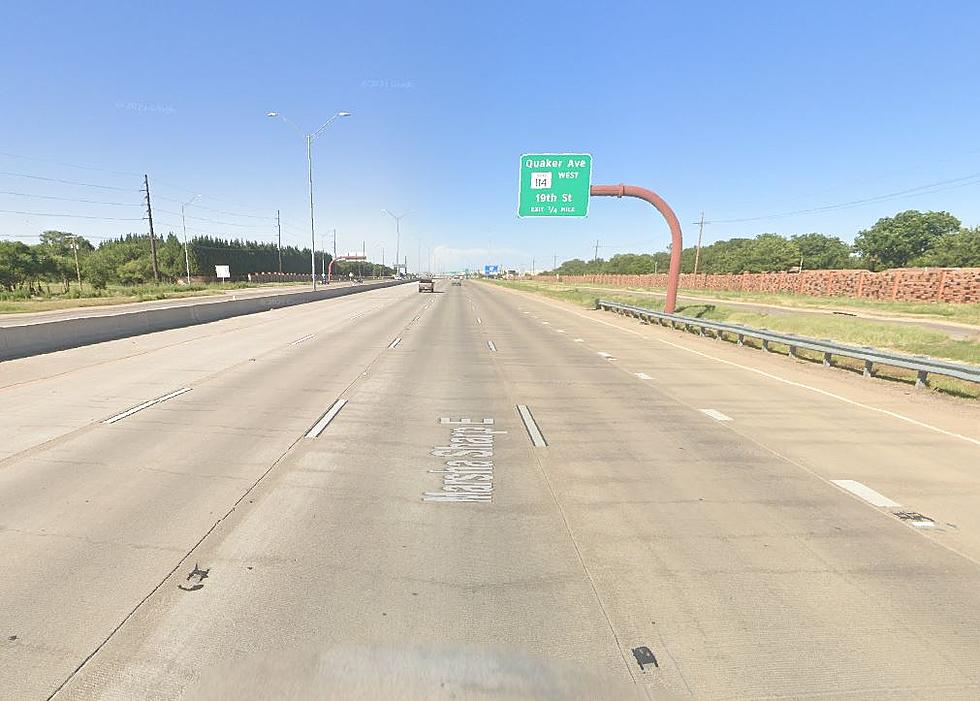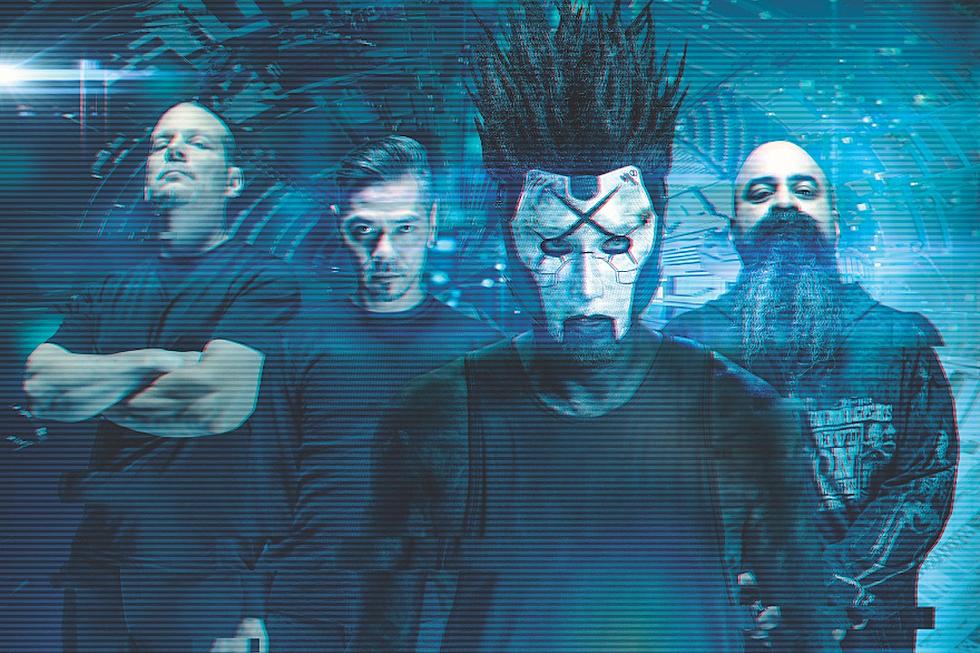
A Lubbock Man Shares Memories of the Los Angeles Riots, 30 Years Later

With all of the strife and unrest in our world, sometimes the spark that lights the fire gets forgotten over time. Between George Floyd, January 6th and the like, we tend to forget that there was one week that polarized the world and changed the lives of those who were there forever.
30 years ago. The Los Angeles Riots. I was there. Right in the middle of it all. Literally.
In 1992, I was a young DJ at a very successful Los Angeles radio station KOST 103.5, which was located in an area known as "Koreatown." I was just 24 years old at the time and held the overnight show, playing soft rock for Southern California. At that time, tensions were high with the reaction to the Rodney King beating and trial of the four police officers involved.
After the jury in Simi Valley came back with four Not Guilty verdicts on April 29th, it was as if a powder keg was set off, especially in South Central Los Angeles.
At the time of the verdict, I was asleep in my apartment in Rancho Cucamonga, which was 40 miles east of LA in San Bernardino County. I worked overnights, so I had no idea what was going on until I woke up around 9 p.m. I saw the stories about the flashpoint at Florence and Normandie and the beating of Reginald Denny, but as it appeared that most of the violence was condensed in South Central and had died down after a bit, I gave no thought to driving into work for a 2 a.m. shift. Even though I saw the glow of fires off in the distance during my drive, I did my show as normal and drove home around 7 a.m.
I had no idea what the next day would bring.
I was awakened around 2 p.m. with a phone call from by boss, Jhani Kaye. He asked if I had been watching TV and knew what was happening. I told him I had been asleep and turned on the television to the images of a city in chaos.
Jhani then said that he needed me to come into work that night at 6 p.m. because he did not want the female host of our night show to come in for her own safety. He also said that he honestly didn’t know when he would have someone in to relieve me on the air. I had a friend who worked for the station to lived directly downstairs from me who was available to run the controls overnight, so I agreed.
I then set up a 6-hour VHS tape that would record the images from the TV along with my radio show. My friend and I left for Los Angeles at around 4 p.m., but not before my friend placed a loaded .357 on the seat between us. "Just in case," he said.
As we made the trek, the closer we got to LA, the pillars of smoke became almost ubiquitous. We gazed in shock and amazement as e saw people on overpasses above us, running in every direction. We exited the Hollywood Freeway (US 101) at Melrose Avenue and turned south. As we drove on Normandie (yes, that Normandie), we noticed a fire almost directly ahead of us. A strip mall at the corner of Normandie and Beverly was fully engulfed in flames and another strip mall adjacent was being looted to the bare walls.
As we approached the intersection, a firetruck skidded to a stop in front of us, which meant we had to turn around, right into the parking lot of the looted strip mall. We pulled directly in front of a Chief Auto Parts store and suddenly found ourselves face-to-face with a looter who clearly did not appreciate the presence of two young white guys as he left out of the store.
He stared us down as my friend tightly gripped the handle of his .357. I immediately threw my car in reverse and floored it. If I had run over anyone, we wouldn’t have stopped or cared. We ultimately found ourselves staking side streets to avoid major intersections, agreeing that we were not stopping for any red lights because it wasn't like the police were going to be concerned about traffic violations. After a short time, we arrived at the radio station at 610 South Ardmore.
Nice neighborhood, huh?
We were housed with KFI-AM, a major talk radio station that covered all of western America with a 50,000-watt signal that was normally buzzing with activity. However, it was decided that the staff of that station would broadcast from the safety of our engineer’s home. The rest of us, were let to the ravages of what was devolving into a very dangerous situation in Koreatown.
From our third-story window, we could see looters scampering down the street as more strip malls exploded into flames just blocks away. Across the street from our building, I observed a group of Koreans on the rooftop of their grocery store armed with automatic weapons, which was a scene that was playing out al over the area.
As I walked into the KOST studio, I noticed that our afternoon DJ also had a loaded .357 on the counter. No chances were being taken. I met with my boss who wanted me to play it normal and assume that I was only "playing to Orange County," since LA was a bit "preoccupied." Normally, we played Lovesongs after 7 p.m., and I honestly didn’t expect a lot of phone calls or dedications.
Just after 7 p.m., our general manager came into the studio and announced that because the situation outside had deteriorated so much we were to evacuate the building and to sign the stations off the air. I made a quick announcement to that effect and remotely turned off our transmitter.
As I walked around the building it was apparent that it was actually much safer inside our building than it was outside, so a group of us elected to stay. Plus, our corporate HQ in Atlanta was now aware of our situation, yet still ordered our stations to go back on the air. After turning the transmitter back on and playing CDs for a few minutes, I went back on the air and continued to do a show.
My boss called just after that time and said something that I'll never forget: "You know, if you need to go on the air and just talk to people for 10 minutes straight about this, that’s fine." He also told me not to worry about doing a typical Lovesongs show because "there’s no love in LA tonight."
Ironically, we did get lots of calls from people who seemed almost oblivious to the state of the community and were more concerned about telling their boyfriends or girlfriends that they wanted to get back together. I could only shake my head, and essentially played whatever I wanted.
Throughout the night we kept a television on in an adjacent studio to monitor what was going on and see if things were getting close to our building. Somehow, we managed to remain unscarred by the looting or damage that night. At midnight, I retired the microphone and tried to sleep on a couch in an office, which was virtually impossible due to the sirens and fires that would pop up through the windows. I went back on the air with the dawn at 5 a.m. only to be finally relieved on the air by our morning team an hour later, who were none too happy to have come in that day.
As we left, we turned down Vermont Avenue to survey the damage and were stunned to see large strip malls smoldering in ruins. I recall that it some cases those intersections took years to rebuild, if they were rebuilt at all, serving as reminders for many years of the carnage of one of nation's darkest chapters.
In the subsequent weeks, there were the occasional skirmishes and the random sound of gunshots that put us on edge. We also had a contingent of National Guard troops that patrolled inside and outside our building for several weeks. It was eerie to be in my studio at 4 a.m. only to watch an armed solider stroll past my studio window.
I’m shocked that these memories are still so vivid at times, but yet it seems like yesterday. Let’s hope that we can ultimately learn from the events of the past and can all be more tolerant of one another and make the world a better place.
If you want to learn more abut that horrible week, here is a great documentary on YouTube called "LA 92."
14 Things Lubbock, Texas Is Best Known For
15 Ways You Can Help People in Ukraine Right Now
LOOK: States With the Most New Small Businesses Per Capita
More From KFMX FM







![President Trump Tells Rioters to ‘Go Home in Peace’ [Video]](http://townsquare.media/site/516/files/2019/12/GettyImages-1186276253.jpg?w=980&q=75)
![Officials Respond to U.S. Capitol Being Breached by Rioters, Protestors [Update]](http://townsquare.media/site/192/files/2021/01/GettyImages-1294934615-1.jpg?w=980&q=75)
